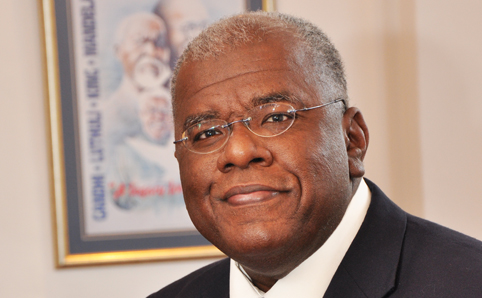Latest News Archive
Please select Category, Year, and then Month to display items
12 October 2020
|
Story Arina Engelbrecht
|
Photo Supplied
 Arina Engelbrecht from Organisational Development and Employee Well-being believes physical activity has a number of benefits for one’s health, including stress relief.
Arina Engelbrecht from Organisational Development and Employee Well-being believes physical activity has a number of benefits for one’s health, including stress relief.
Being physically active plays a big role in preventing the development of mental-health problems and in improving the quality of life of people experiencing mental-health problems.
Treatment for depression
Physical activity can be an alternative treatment for depression. It can be used as a stand-alone treatment or in combination with medication and/or psychological therapy. It promotes all kinds of changes in the brain, including neural growth, reduced inflammation, and new activity patterns are formed that promote feelings of calm and well-being. It releases endorphins – powerful chemicals in the brain that energise your spirit and make you feel good.
Physical activity can be very effective in relieving stress. Research in adults has found that physically active individuals tend to have lower stress levels compared to individuals who are less active. It also leads to improved sleep. When a person sleeps better and feels more rested, overall quality of life improves. They cope better with daily life stressors.
Reduce Alzheimer's risk
Regular physical activity can reduce your risk of developing Alzheimer's disease by up to 50%. It can also slow down further deterioration in those who have already started to develop cognitive problems. It stimulates the brain’s ability to maintain old connections as well as to make new ones.
A study asked people to rate their mood immediately after periods of physical activity (e.g. going for a walk/run, cycling, doing housework) and periods of inactivity (e.g. reading a book or watching television). Researchers found that participants felt more content, more awake, and calmer after being physically active compared to after periods of inactivity.
In conclusion, people who are physically active feel a sense of well-being, feel more energetic throughout the day, sleep better at night, have sharper memories, and feel more relaxed and positive about themselves and their lives.
“Being physically active not only changes your body, it changes your mind,
attitude, and your mood.” – Arina Engelbrecht
Prof. Jonathan Jansen to receive lifetime achievement award
2012-03-23
 |
|
Prof. Jonathan Jansen
23 March 2012
|
The University of the Free State (UFS) is proud to announce the nomination of its Vice-Chancellor, Prof. Jonathan Jansen, for a Lifetime Achievement Award for Africa. The nomination by Education Africa is for his work, vision and achievements in higher education.
The past awardees are Archbishop Emeritus Desmond Tutu, Sir Bob Geldof, Sir Richard Branson and David Dinkins, former mayor of New York City.
Education Africa is a non-profit organisation which assists disadvantaged South Africans to obtain a quality, relevant education. Prof. Jansen will receive the award during a Gala Awards dinner in New York, USA, in October this year.
Following on his successful book "We need to talk", Prof. Jansen also recently released a new book entitled "Letters to my children: Tweets to make you think".
The royalties of "We need to talk", to the value of R100 000 will be handed over to the No Student Hungry Campaign of the UFS during a Dinner Launch of the campaign in Bloemfontein tonight.
Prof. Jansen also recently received the Paul Harris Award from the Rotary Foundation of Rotary International for “tangible and significant assistance for the furtherance of better understanding and friendly relations among peoples of the world.”
Media Release
23 March 2012
Issued by: Lacea Loader
Director: Strategic Communication
Tel: +27(0)51 401 2584
Cell: +27(0)83 645 2454
E-mail: news@ufs.ac.za